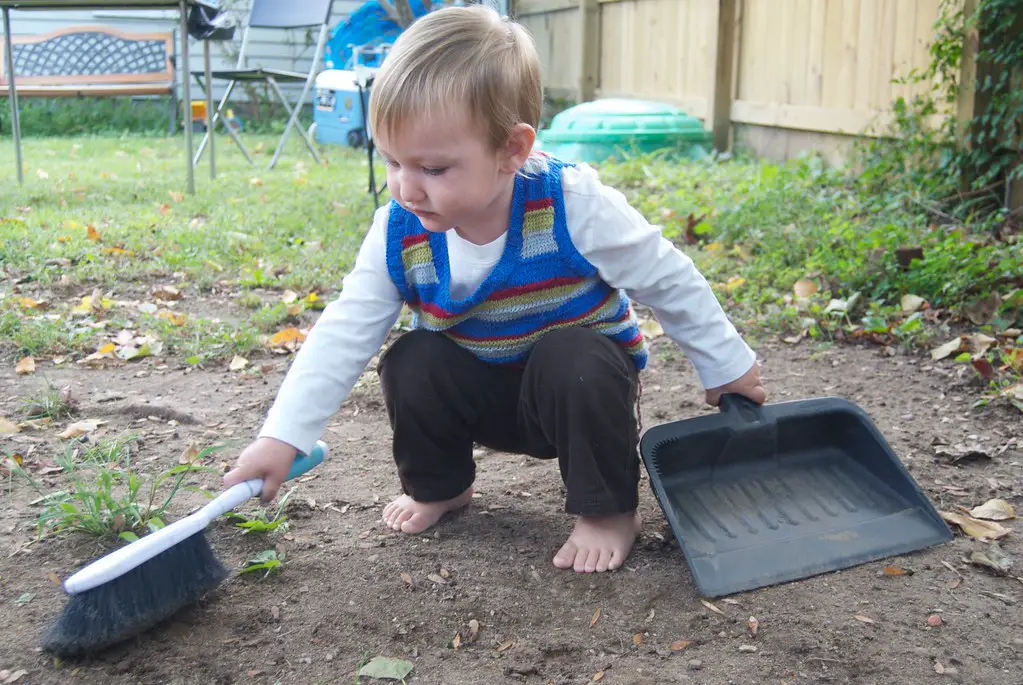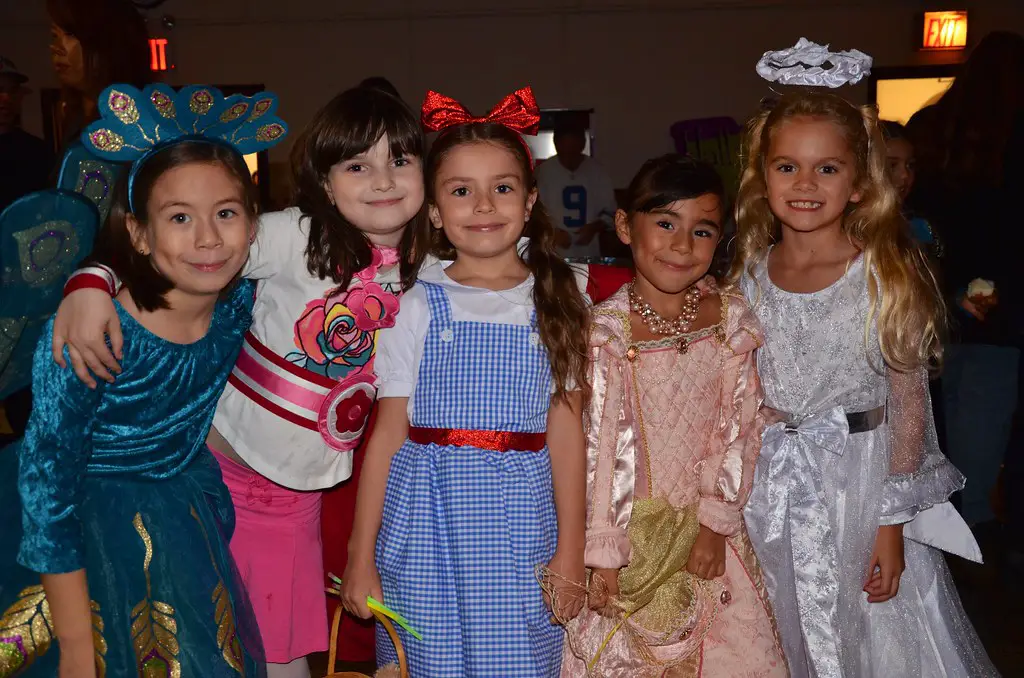Cultural expectations within households have shifted dramatically over the past few decades. Rules that were once considered standard or even polite are now often seen as outdated, exclusionary, or outright offensive. These former norms reflected the dominant social values of their time—but today, many are being reexamined through a more inclusive lens. Here are 13 household rules that were once widely accepted but are now likely to spark disagreement or discomfort.
1. “Boys Don’t Do Housework”

It was once a common rule that boys were excused from chores like washing dishes or folding laundry, while girls were expected to help out in the home. This gender-based divide reinforced the idea that domestic tasks were inherently “female.” According to Sage Journals, such traditional divisions have contributed to long-standing gender inequality in both family and work life. Today, this rule is not only outdated but viewed as sexist and unfair.
Modern families increasingly promote shared responsibilities regardless of gender. Teaching children that chores are for everyone helps prepare them for independent adulthood. It also models respect and cooperation in relationships. Keeping this old rule in place sends the wrong message about equality and capability.
2. “No Crying Allowed—Especially for Boys”

Many households once enforced a strict “no tears” policy, particularly with boys who were expected to “toughen up.” This kind of emotional suppression was seen as building character or maturity. But as Psychology Today points out, discouraging emotional expression in children can lead to long-term mental health challenges. What was once a standard rule is now widely criticized for promoting toxic masculinity.
Letting kids express sadness, fear, or frustration is a healthy part of emotional development. Today, parents are encouraged to validate feelings rather than silence them. Emotional intelligence is now seen as a strength, not a weakness. The old rule of emotional denial is not just harmful—it’s offensive to modern values around mental wellness.
3. “You Have to Hug Everyone Goodbye”

Insisting that children physically show affection to every visiting relative or friend was once seen as polite manners. But forcing hugs or kisses can violate a child’s sense of autonomy and comfort. According to The Washington Post, parenting experts now recommend teaching children about bodily consent from an early age. What used to be standard etiquette is now being called out as potentially harmful.
Today’s families are more attuned to teaching respect for personal boundaries. Children should be allowed to choose how they express affection. It builds a foundation for understanding consent in future relationships. Forcing physical gestures is now widely seen as inappropriate.
4. “No Talking Back to Adults—Ever”

In many households, questioning an adult’s rule or opinion was considered unacceptable, even if the child was being respectful. This “children should be seen and not heard” mindset was rooted in a desire for obedience. But experts from Child Mind Institute argue that silencing kids discourages healthy communication and critical thinking. Now, many view this rule as stifling and even emotionally damaging.
Modern parenting encourages dialogue rather than blind obedience. Children are taught to express themselves clearly and respectfully. Giving them space to ask questions helps them develop confidence and independence. Completely banning “talking back” is now seen as controlling and disrespectful in itself.
5. “No Guests from Different Backgrounds”

Some households once had unspoken or even explicit rules about not allowing friends of different races, religions, or ethnicities into the home. While not always stated outright, the bias was clear in who was welcomed and who wasn’t. This type of exclusion was often disguised as a concern for “safety” or “values.” Today, such a rule would be recognized as blatantly discriminatory.
Families now emphasize inclusion, diversity, and mutual respect. Children are encouraged to build friendships across cultural lines. Teaching acceptance begins at home, and outdated restrictions like this stand in direct opposition to that. What was once quietly accepted is now rightly condemned.
6. “Girls Must Dress Modestly at All Times”

It was once common for girls to be held to strict clothing rules, while boys faced no such expectations. These rules were often based on the idea that it was a girl’s responsibility to prevent “distraction.” This double standard reinforces harmful ideas about body shame and victim-blaming. Many now see such rules as oppressive and rooted in outdated gender roles.
Current discussions about dress codes focus on fairness and self-expression. Teaching all children to respect others, regardless of clothing, is more valuable than restricting how one group dresses. Policing girls’ outfits sends the wrong message about consent and control. It’s a rule that modern households are increasingly abandoning.
7. “No Talking About Politics or Religion at the Table”

While once intended to keep the peace, this rule can suppress important conversations, especially for younger generations trying to learn about the world. Shutting down these topics entirely can teach avoidance rather than thoughtful engagement. Avoiding difficult discussions doesn’t prepare children to handle disagreement respectfully. Today, many families are embracing open dialogue over silence.
Disagreements are a natural part of learning and growth. Discussing politics or religion at home can foster critical thinking and empathy. Families are learning that discomfort isn’t the same as disrespect. The goal has shifted from silence to mutual understanding.
8. “Only the Father Makes the Rules”

In traditional households, the father was often considered the sole decision-maker. This created a power imbalance and frequently excluded women and children from meaningful input. It reflected a patriarchal view that is increasingly seen as outdated. Shared leadership in families is now the norm.
Parents are more likely to make decisions together or with input from their kids. This promotes respect, communication, and cooperation. The idea of one person holding all the authority feels more authoritarian than familial. Today’s households value equity over control.
9. “No Talking About Feelings”

Emotional repression was once a rule in many homes, framed as stoicism or strength. Showing emotion, especially vulnerability, was often frowned upon or dismissed. But suppressing emotions can lead to anxiety, disconnection, and poor communication. More families now prioritize emotional literacy and openness.
Discussing feelings helps build trust and resilience. It encourages empathy and strengthens relationships. Parents are modeling emotional intelligence for their children. The old rule of silence is being replaced by encouragement and validation.
10. “Everyone Eats the Same Food, No Exceptions”

In years past, many households had a firm rule: everyone eats what’s served, no special meals. This discouraged dietary preferences, allergies, or ethical choices from being accommodated. While it may have simplified mealtimes, it also minimized individual needs. Today, many see this rigidity as dismissive or even harmful.
Modern families often account for gluten intolerance, vegetarianism, or sensory issues. Creating inclusive meals builds respect and flexibility. It’s no longer considered indulgent—it’s thoughtful and caring. The old rule of “clean your plate or go hungry” is falling out of favor.
11. “The TV Remote Belongs to Dad”

It used to be a running joke that dad had complete control over the TV. This symbolized broader household power dynamics, often reinforcing gender stereotypes. The idea that one person should dictate shared entertainment feels exclusionary today. Families now aim for more balanced decision-making.
TV time is often negotiated with fairness and input from all members. Streaming services allow for multiple profiles and preferences. Everyone’s taste can be represented, not just one dominant voice. The living room has become a more democratic space.
12. “No Visitors Unless the House Is Perfectly Clean”

Some families enforced a strict rule against inviting anyone over unless the house was spotless. While rooted in pride or hospitality, this rule often promoted anxiety and performative perfection. It also discouraged spontaneous connection and community. Today, many embrace a more relaxed and authentic approach.
Being “company ready” now means being real, not flawless. Mess is seen as a sign of life, not failure. People are choosing connection over image. The rigid standard of presentation is fading away.
13. “Privacy Is Earned, Not Given”

Parents used to justify snooping through bedrooms or diaries by saying, “If you’ve got nothing to hide, you’ve got nothing to worry about.” This rule ignored a child’s need for boundaries and autonomy. Today, privacy is recognized as essential for developing trust and independence. Respecting it is no longer optional—it’s part of responsible parenting.
Families now talk openly about digital safety and personal space. The goal is to foster honesty, not fear. Parents still guide and protect, but without crossing into invasive behavior. The shift reflects a deeper respect for individuality and trust.
